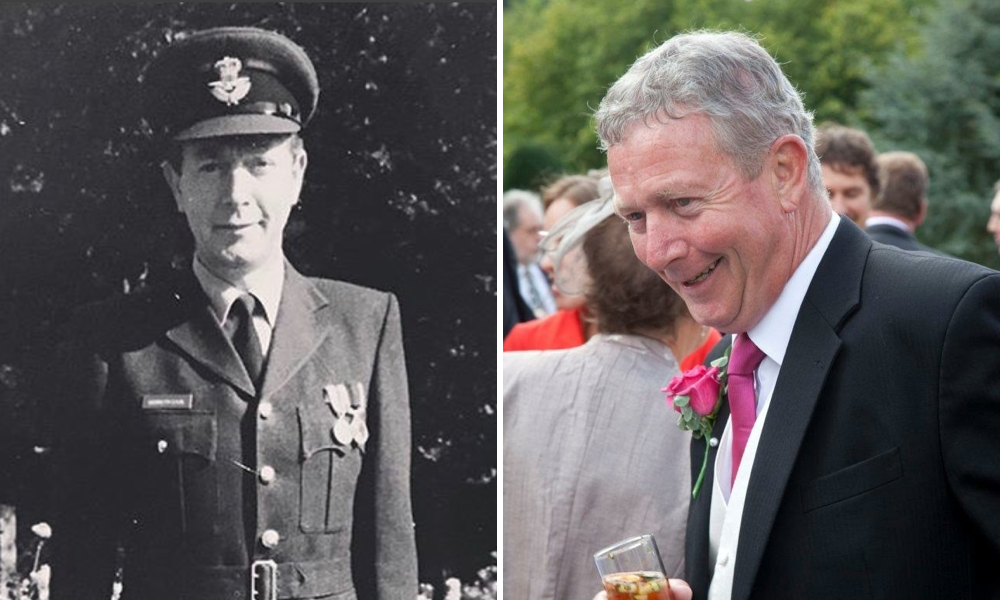Insights / Articles
My Dad was ‘one in a million’, as the saying goes. But actually he was one in 300 million (of patients worldwide with rare disease)
Written by Emily Wigginton on Friday, February 28, 2020
Rare disease day, traditionally the last day of every February, is fast approaching. Last year I wrote about my dear friend Tori, who was diagnosed with a rare post-natal condition called SCAD (Spontaneous Coronary Artery Dissection). This year I want to share my Dad’s story. Sadly, unlike my friend Tori who is a rare disease survivor, my darling dad passed away 3 years ago.
Dad had a rare disease called mesothelioma. We had never heard of it. He was diagnosed with pleural mesothelioma (ORPHA:50251) to be precise – a rare cancer of the protective lining of the lung. It’s caused by inhaling asbestos fibres into the lungs and, shockingly, mesothelioma typically takes 20 to 50 years to develop! In my Dad’s case it took about 45 years.
My Dad was in the Royal Air Force his entire working life (Wing Commander Armstrong no less) and we learned that he contracted meso in the early 70’s when working in aircraft hangers, surrounded by asbestos. He was an engineer by trade and at this time he worked on amplifiers on Hercules aircraft and also on Lightning aircraft which had asbestos in and around the engines and jet pipes. It was only many years later that we learned that the test bays in which he worked were being remodelled and blue, deadly asbestos had been discovered in them – it was pretty much everywhere.

Of course we had no idea about any of this until the day he was diagnosed and actually after a lot of digging and research. Dad had always been super fit, sporty and the bearer of many a trophy for nearly every sport imaginable, rugby being his favourite. How quickly he suddenly became ill and how it impacted his life was shocking to see. His initial diagnosis was in 2015, just 10 days after my baby girl was born. He didn’t live to see her 2nd birthday.
He was actually diagnosed pretty quickly in the grand scheme of rare diseases. His medical team first thought it may have been a chest infection, then pneumonia and then Legionnaires’ disease, but they soon arrived, correctly, at mesothelioma. We knew early on it was terminal, but he battled as hard as he could and was prepared to try any drug or trial available. Dad took part in one clinical trial and underwent a pleurectomy/decortication surgery – an aggressive treatment option for pleural mesothelioma, which involves removing the pleural lung lining and all visible tumour masses, while leaving the lungs in place. This bought him some time – a further 20 months, to be precise.
Mesothelioma cases are set to rise in the next 10-20 years and raising awareness of the dangers of asbestos exposure but, most importantly, the work that is still needed to tackle rare diseases like mesothelioma, is as important as ever before. Dad and I supported the Royal British Legion fight for compensation for veterans diagnosed with meso and I took this and Dad’s story to the then Prime Minister Theresa May and was fortunate to meet her to discuss this dreadful disease. But the work continues and public support and increased awareness are paramount to the fight against rare diseases.
OPEN Health is a company committed to helping our clients really make a difference to people affected by rare diseases and their families, and I am so proud and grateful that I can use my job to really try and make a difference. If you would like to talk to us about rare diseases, please do get in touch – we would love to hear from you.
Mesothelioma is a rare disease close to my heart. Cases are set to rise in the next 10-20 years and raising awareness of the dangers of asbestos exposure but, most importantly, the work that is still needed to tackle rare diseases, like mesothelioma is paramount. If I can raise just a little bit of awareness I’ll be pleased. I hope you’ll read my story, thank you.
Emily Wigginton, Client Services Director, OPEN Health Patient & Brand Communications